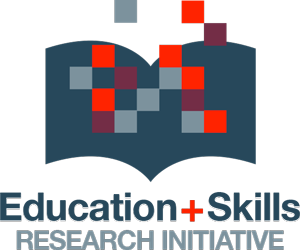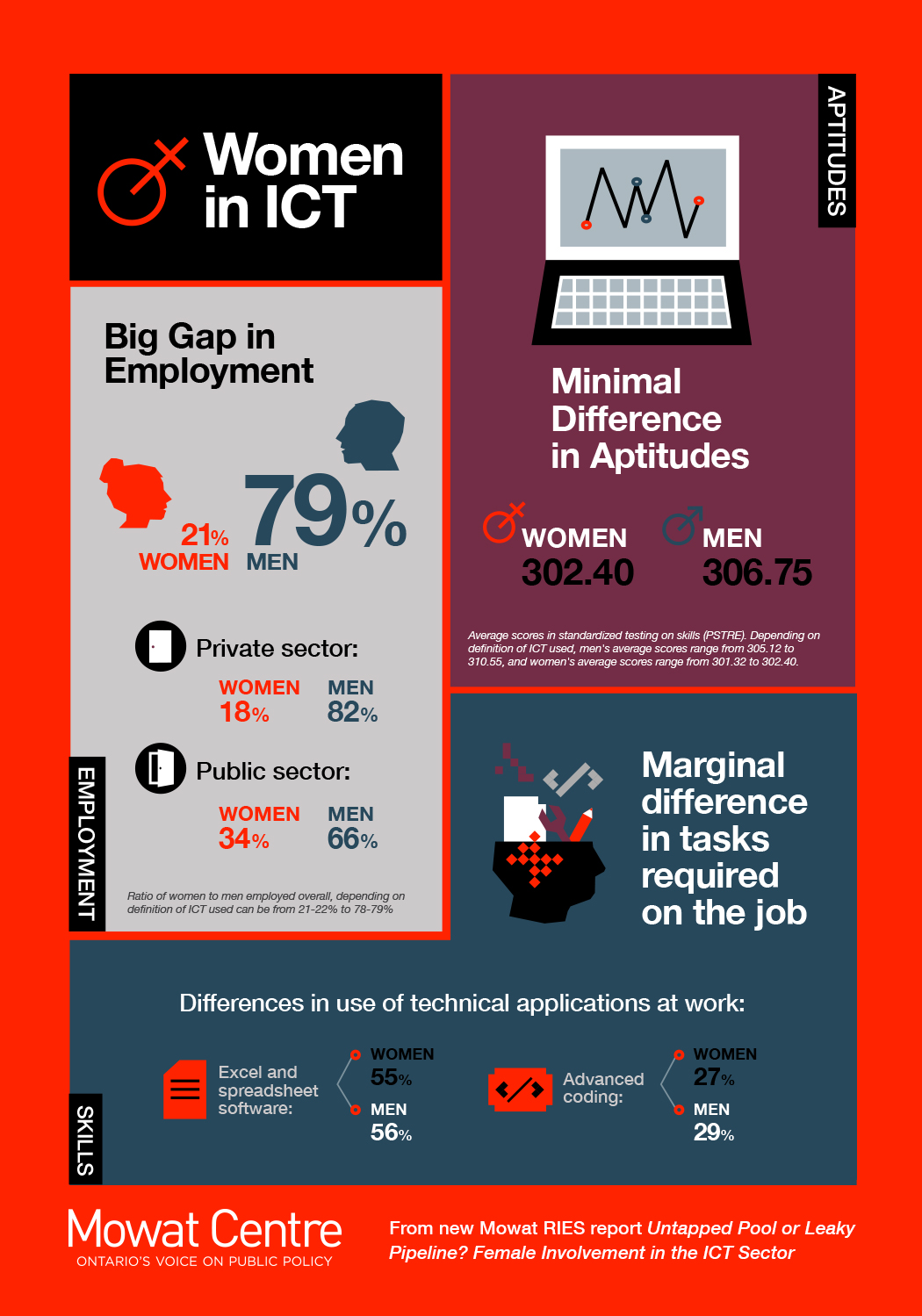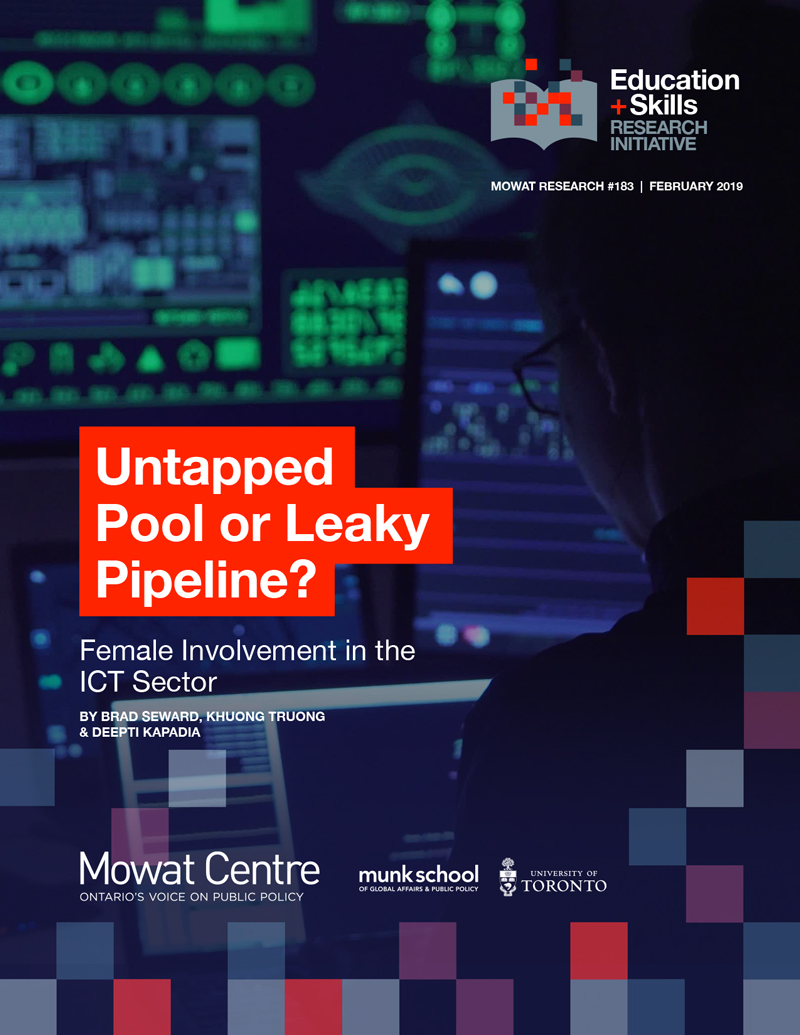February 13, 2019
Female Involvement in the ICT Sector
There are fewer women than men in Information and Communication Technology (ICT) professions in Canada. What drives this trend? Why is this a policy problem, and what can be done to address it? This report, the first from the Research Initiative on Education and Skills (RIES), tackles these topics.
Combining this quantitative analysis with a scan of available policy research, we discuss how governments can do more to encourage young women to choose ICT careers.
View PDF
Authors
Brad Seward
Khuong Truong
Deepti Kapadia
Release Date
February 13, 2019
ISBN
978-1-77259-077-7
Mowat Research
No. 183

Research Initiative on Education + Skills
The Research Initiative on Education and Skills is an innovative collaborative policy research initiative led by the Mowat Centre and the Higher Education Quality Council of Ontario. Its purpose is to access, analyze and mobilize data relating to the education, skills and labour market outcomes of Canadians, and to disseminate the findings to inform policy development.
More









